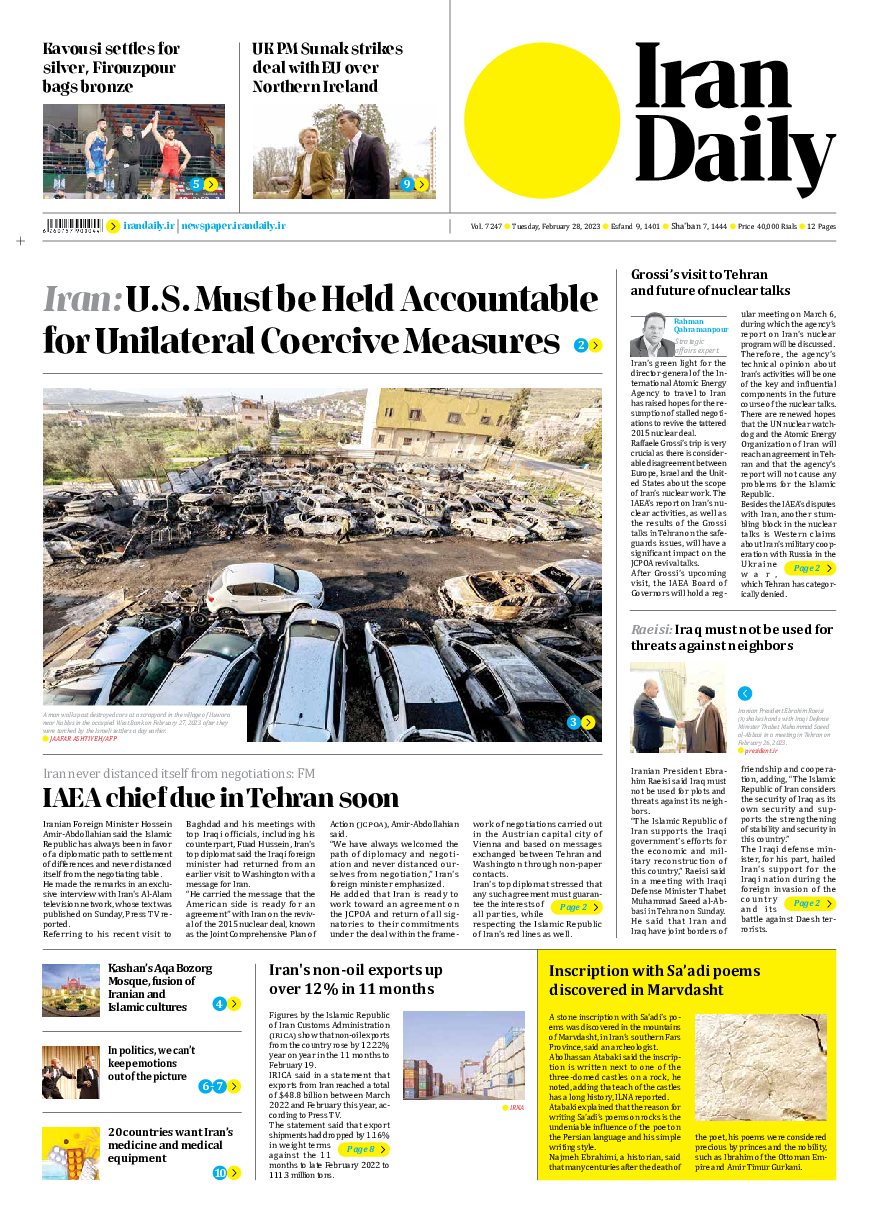
Grossi’s visit to Tehran and future of nuclear talks
Rahman Qahramanpour
Strategic affairs expert
Iran’s green light for the director-general of the International Atomic Energy Agency to travel to Iran has raised hopes for the resumption of stalled negotiations to revive the tattered 2015 nuclear deal.
Raffaele Grossi’s trip is very crucial as there is considerable disagreement between Europe, Israel and the United States about the scope of Iran’s nuclear work. The IAEA’s report on Iran’s nuclear activities, as well as the results of the Grossi talks in Tehran on the safeguards issues, will have a significant impact on the JCPOA revival talks.
After Grossi’s upcoming visit, the IAEA Board of Governors will hold a regular meeting on March 6, during which the agency’s report on Iran’s nuclear program will be discussed.
Therefore, the agency’s technical opinion about Iran’s activities will be one of the key and influential components in the future course of the nuclear talks. There are renewed hopes that the UN nuclear watchdog and the Atomic Energy Organization of Iran will reach an agreement in Tehran and that the agency’s report will not cause any problems for the Islamic Republic.
Besides the IAEA’s disputes with Iran, another stumbling block in the nuclear talks is Western claims about Iran’s military cooperation with Russia in the Ukraine war, which Tehran has categorically denied.
Iran’s foreign minister met with some European officials on Monday on the sidelines of a UN Human Rights Council session in Geneva, and gave explanations about Iran’s military cooperation with Russia to ease European concerns. These meetings will definitely not be ineffective in softening the European Union’s stance. Mistrust between Iran and Europe, unprecedentedly deep over the past year, and the Ukraine war is a crucial issue for Europe.
Efforts by the parties involved in the nuclear negotiations have not borne satisfactory results. Therefore, all parties, especially Iran and the U.S., are expected to adopt realistic approaches in order to reach a favorable deal. But the fact is that the conditions which led to the agreement of the JCPOA in 2015 no longer exist, and the benefits of the troubled deal have drastically diminished for both Iran and the U.S.
However, it seems that the parties have no alternative better than the JCPOA. They should either sign a new comprehensive agreement, which is not possible in the short term, while Iran and the U.S. are not ready for such an option, or they should completely abandon the JCPOA and implement Plan B. Between these two options, there can be a short-term solution, and that is a temporary agreement.
This means that the parties agree to put their activities and measures on hold for a certain period of time, for example, three or four months, so that the situation does not deteriorate, and then resume talks to resuscitate the JCPOA in a calmer environment.







